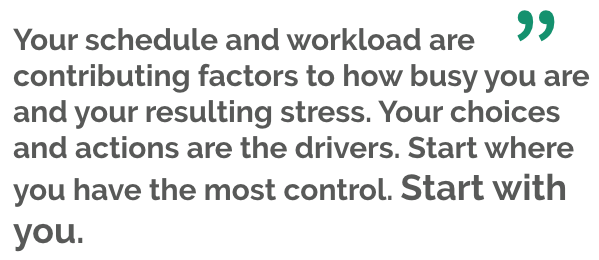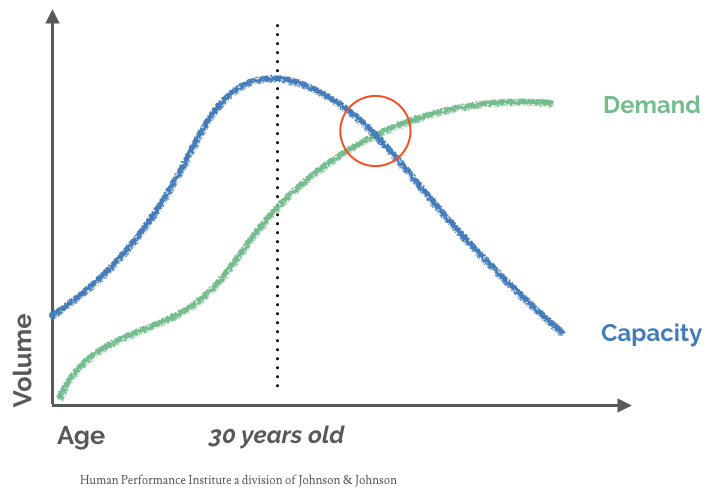Who is the person that decided priority should be plural?
Apr 15, 2019
Art by Anna Kövecses
Some time around 1940, priority was pluralized by some overzealous achiever and you’ve been behind ever since.
The Imaginary Place
Time is finite. 24 hours is what you have (or 168 hours in a week) to be who you are in every aspect of your world. When you realize you spend over 90,000 hours of our life at work, “busy” takes on a whole new meaning. It’s no longer about to do lists or inbox cemeteries where requests go to die. It’s about your health and your (in)ability to sustain the pace. Your life’s work needs you.
For many of my coaching clients, there is an imaginary place in a far away land called “I just have to get through this, and it will get better”. You may be familiar with this place and speak of it often. I know I do.
While teams recognize the importance of moving from reactive to proactive cultures, the reality is, most of us are moving too fast and priorities remain urgent and important. Non-urgent planning such as; hiring structure, alignment of vision, and personal development gets pushed down the list. Perhaps you talk about knowing better, then you head back to the fires. Partially because there’s a fire, and partially because it’s what you’re most familiar with. We’re all well-meaning pyromaniacs at heart.

Life Math
Do you know what’s sobering? Designing a program on stress management and resiliency at one in the morning. The irony keeps you awake. I began to pay close attention to my research, because it was mocking me. The graph below had me in mild hysterics as I realized, I wasn’t just getting tired or forgetting things, I passed my prime capacity. I am the red circle. Damn.

While I love my work and my life, I realize I don’t love the person I’m becoming in order to do it all. The word time management gets tossed around a lot, and it’s not a strategy I buy into. Until now. Real time management requires you deeply understand how and where you spend your time. As in, do the math. Is your time budget balanced towards:
- Time Investment Success: 24 hours or less of doing in your time budget
- Time Debt Stress: more than 24 hours of doing in our time budget
Note: 24 hours includes basic care such as sleep, eating, and grooming (I know some think it’s optional).
A second layer to tracking how you spend your time, is to examine your energy levels over the course of a day. What drains you and what energizes you on a scale of 1–10? How do you design your days with more purpose and attention towards your energy needs?
Get honest about your reality by keeping a daily time and energy log for a few days. If you have a more dynamic schedule, map your time budget over a week. You can begin to get clear on what you think your priorities are and what you’re actually prioritizing with your finite time.

Know your Energy Patterns
Great, now that reality is staring you in the face (you’re welcome) what’s next? Focus on your capacity. Yes, that descending line in the graph — it turns out you have more influence than you realize. It also means you might have to introduce new habits and wave goodbye to some that served you well in the past. Caffeine spike anyone? Managing your Energy requires you to be more thoughtful about your choices and pay attention to four quadrants that make or break your ability to perform and enjoy life. A few coaching reflection questions to consider around your energy management:
- Emotional: What are your recovery zone practices and how often are you engaging in them?
- Physical: How do you prioritize your health in service of your commitments?
- Mental: How might you describe your mental capacity and the impact on your relationships?
- Spiritual: What are your values and how do you demonstrate them in the choices you’re making?
Make Habits a Habit
When it comes to re-engaging your energy, rituals are integral. Pulse points of 90–120 minutes of work with 20 minute breaks helps your capacity and responsiveness. Many of us wait until it’s too late and disengage completely because we’ve exhausted our reserves. What habits might you develop to manage your energy according to the best practices outlined by Tony & Jim? Here are some new rituals I’m focused on this month:
- Drink water, over two litres a day
- Work in 90 min sprints with breaks by setting an alarm
- Move or be active for 10 mins a day — baby steps, people
- Sleep 7 to 8 hours a night
The biggest mental shift for me; changing my habits is a sign of dedication. Working in the energy zones for high performance requires a thoughtful dance between engaged and strategically disengaged quadrants. Start with self awareness, map out your reality and desired state, create a plan for rituals, and then actually do what you said you’ll do.

–EB
Follow @leadershipcollaboratory on instagram for leadership tips and behaviour tools.
Subscribe to the Random Acts of Learning newsletter, thoughtful yet infrequent insights from our world to yours. Mostly about being the best humans we can possibly be, within reason of course.


